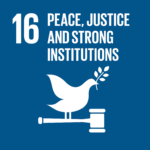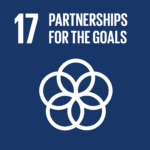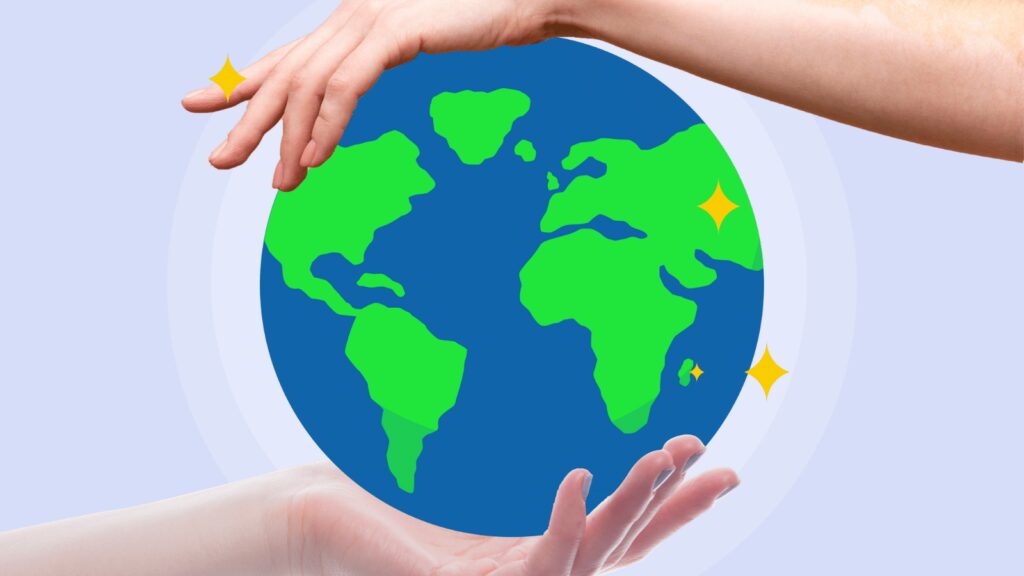A global challenge for climate action in solidarity with the people who need it most #worldhumanitarianday
The humanitarian system is being pushed to its absolute limit – and beyond – by the climate crisis, natural disasters, conflict and the #COVID19 pandemic. In 2021, 235 million people will need humanitarian assistance and protection. This number has risen to 𝟭 𝗶𝗻 𝟯𝟯 𝗽𝗲𝗼𝗽𝗹𝗲 𝘄𝗼𝗿𝗹𝗱𝘄𝗶𝗱𝗲 – a significant increase from 1 in 45 at the launch of the Global Humanitarian Overview 2020, which was already the highest figure in decades.
This year, United Nation highlighted the immediate human cost of the climate crisis by pressuring world leaders to take meaningful climate action for the world’s most vulnerable people. Stand in solidarity with the world’s most vulnerable people by using these hashtags in your social media activities #TheHumanRace #WorldHumanitarianDay.
RELEVANT SUSTAINABLE GOALS


HUMANS IN THE CLIMATE CRISIS
While the climate emergency is global, but its impacts are felt unequally. Millions of people who are already losing their lives, their homes and their livelihoods to climate change. These people have contributed least to the global climate emergency, yet they are being hit the hardest. In 2020, there were 40.5 million new internal displacements due to climate-related natural disasters; like floods, droughts and heat waves.
From 16th to 31st August, lace up your shoes & join #TheHumanRace to show solidarity with people around the world affected by the climate crisis. You can run, ride, swim, walk or do any activity of your choice for a total of 100 minutes to express solidarity with vulnerable pole and to urge world leaders that they expect developed countries to deliver on their decade-old pledge of 100 billion annually for climate mitigation and adaptation in developing countries.
This #WorldHumanitarianDay – and every day – we can all do our part to take #ClimateAction and win the race against climate change.

HUMANITARIAN CATASTROPHE
Along with the climate-related natural disasters, the humanitarian system is being pushed to its absolute limit – and beyond. So many emergencies happening simultaneously. This moment in history is one of extreme fragility. Many actions could be taken individually such as:
1. EDUCATE YOURSELF : learn, unlearn and re-learn. Use your privilege to hell others.
2. SHOW UP : Show up with your time, skills, knowledge and dollars. Anything. Look for opportunities to speak, show up and act.
3. CALL OUT : Call out any injustice and inequality. Calling out and confronting people is only one of many ways you can use uour ordinary privilege. Instead, we can ask questions, raise issues, and add perspectives that are not organically emerging in discussions at work. We can introduce data, invite people into conversations, and create buzz around ideas. We can amplify the views of people not being heard at meetings, and bring back conversations when someone is interrupted. We can notice when bias is playing out around us, and name it when it happens.
4. KEEP SHOWING UP : Keep show up. Learn to rest, NOT to quit. People’s lives are on the line so keep amplifying the voices of people. Keep raising awareness. Continue the conversation.
5. RECRUIT ALL HUMANS : Be inclusive and welcome all humans. Being inclusive starts with each of us having a heightened sense of ourselves. We must be willing to be vulnerable in order to understand ourselves. Only when we understand ourselves can we understand others.
So are you ready to take action with us and hundreds of other humans ? The world has never seen so many emergencies happening simultaneously. In the race against climate crisis and humanitarian catastrophe, we can’t leave anyone behind.
Life's most persistent and urgent question is: What are you doing for others?
Martin Luther King Jr.
Also Read :
Threading Change : Push Extension of The Bangladesh Accord


